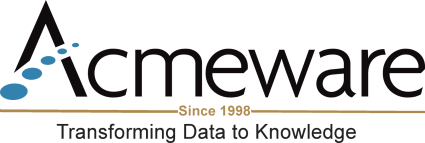CMS recently published the FY 2026 Inpatient Prospective Payment System (IPPS) Proposed Rule which includes several proposed changes to the Hospital Inpatient Quality Reporting (IQR) Program and Medicare Promoting Interoperability (PI) Program for eligible hospitals (EHs) and critical access hospitals (CAHs). For the full text of the rule, see the Federal Register.
CMS’ Merit-based Incentive Payment System (MIPS) is a pay-for-performance program where a higher score leads to higher reimbursement. Further, MIPS is a budget neutral program where those receiving a negative payment adjustment fund those receiving a positive payment adjustment. The Complex Patient Bonus can help you achieve a higher score.
CMS’ Merit-based Incentive Payment System (MIPS) is a pay-for-performance program where a higher score leads to higher reimbursement. In MIPS, there are four performance categories: Quality, Cost, Promoting Interoperability, and Improvement Activities. This blog will explore the Cost Category for 2024.
Is your Healthcare Data Being Governed?
In today's rapidly evolving healthcare landscape, effective data management is crucial for delivering high-quality patient care, ensuring regulatory compliance, and improving operational efficiency. While working with Meditech hospitals, we recognize that robust healthcare data governance and a well-defined reporting structure are essential components that must work together.
Enjoy this edition of MUSE Views, the podcast for the MUSE community, as we talk with key Commercial members to focus on timely products and services to enhance your IT environments, productivity, workflows, and more. In this show from March 2024, Joel Benware discusses the transition from a community hospital CIO to President of a vendor company, and what makes Acmeware special.
In the world of healthcare, Electronic Health Records (EHRs) have become indispensable tools, revolutionizing the way patient information is documented, managed, and shared. MEDITECH, one of the leading providers of EHR systems, has played a significant role in this transformation. However, despite their reliability, EHR systems are not immune to downtime, which can occur due to various reasons such as technical glitches, ransomware attacks, maintenance activities or even natural disasters.
In part one of this blog I wrote about why I think Microsoft Power BI is a superior data analysis and reporting platform for MEDITECH Data Repository compared to SQL Server Reporting Services. In this second part of a a two-part analysis, I continue the discussion by reviewing the user presentation and interactivity experience.
I’ve been working with MEDITECH Data Repository since 2000. That’s longer than I care to note, but I still remember when SQL Server Reporting Services was first included with SQL Server, in version 2000: after struggling to find an easy way for our small hospital to share DR data and reports without having budget dollars for software like Crystal Reports, suddenly we could share it on our intranet.
A Guide to Meeting Promoting Interoperability Program Requirements
As the healthcare landscape evolves, so do the requirements for quality reporting. One such significant change for hospitals and critical access hospitals (CAHs) in the upcoming year (CY 2024) is the mandatory requirement of the Antimicrobial Use and Resistance (AUR) Surveillance measure under the Public Health and Clinical Data Exchange Objective in the Medicare Promoting Interoperability (PI) Program.
CMS recently published the CY 2024 Outpatient Prospective Payment System (OPPS) Final Rule, which finalized changes for the Hospital Outpatient Quality Reporting (OQR) Program. In the final rule, CMS finalized modifications to three measures and finalized the adoption of two measures in the OQR Program. These modifications aim to further meaningful measurement and reporting of the quality of care provided in the outpatient setting. For the full text of the rule, see the Federal Register.
CMS recently published the CY 2024 Quality Payment Program (QPP) Final Rule which included numerous updates to MIPS Value Pathways (MVPs) and Merit-based Incentive Payment System (MIPS). For the full text of the rule, see the Federal Register.
If your electronic Clinical Quality Measure (eCQM) performance numbers do not reflect your workflow and are not what you would expect them to be, then it’s likely that you have mapping inaccuracies. What is data mapping, and why is it important for accurately calculating quality measure data?



